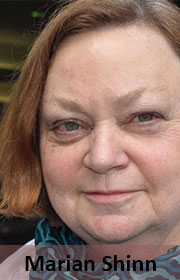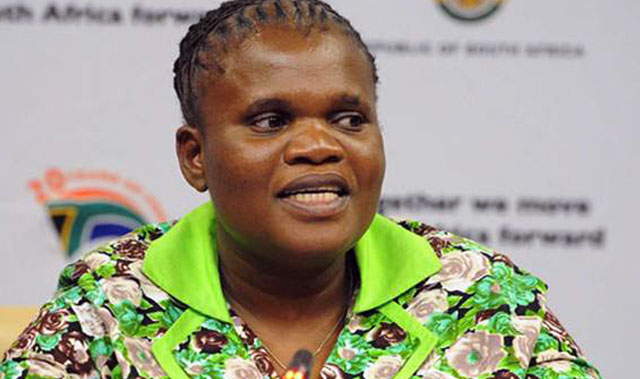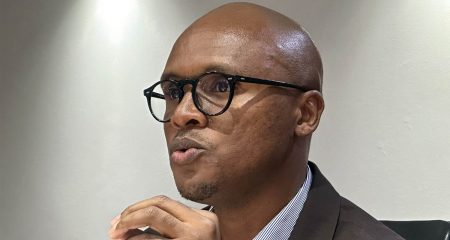 Government’s failed R8,5bn broadcast digital migration process must be stopped in its tracks and reappraised to determine a new path to free up analogue signals to deliver ubiquitous wireless broadband to the nation and foster sustainable competition in radio and television broadcasting.
Government’s failed R8,5bn broadcast digital migration process must be stopped in its tracks and reappraised to determine a new path to free up analogue signals to deliver ubiquitous wireless broadband to the nation and foster sustainable competition in radio and television broadcasting.
I have written to Mmamoloko Kubayi, chair of the telecommunications & postal services portfolio committee, to call a two-day public hearing in August — involving sector stakeholders, the relevant cabinet ministers and state entities — to get a clear picture of the state of play and determine the most efficient and affordable process to migrate from analogue broadcasting. I await her response.
The digital migration process has failed because:
- South Africa missed the internationally agreed deadline for completion of digital migration in mid-2015;
- The broadcast digital migration policy — first gazetted in 2008 — is forever tangled in taxpayer-funded no-win legal wrangles on the technical issue of signal encryption. This is now headed to the constitutional court;
- The assembly and distribution of the taxpayer-sponsored 5,2m free decoders (or set-top boxes) has been halted because of allegations of corruption in the bizarre tender process. A national treasury investigation done by PwC has been languishing in the communications minister Faith Muthambi’s office since mid-April;
- The applications for decoders for qualifying poor households has been pathetic. Only about 30 000 poor households have so far been identified to receive set-top boxes. It has been noted that at this pace, it will take 84 years to register all the needy households and delivering and installing the boxes will take 800 years;
- National treasury has approved only R2,4bn of the R4,3bn needed to pay for the decoders and their antennas or aerials. This budget has not been adjusted since 2014;
- There is no money in treasury’s current medium-term economic framework for the dual-illumination phase that is critical to the successful transition from analogue to digital broadcasting;
- There is no funding to raise public awareness of the necessity to switch from analogue to digital broadcasting;
- There are no plans or funds to establish, train and staff a nationwide call centre operation to deliver ongoing support to owners of the free decoders;
- There are no plans to equip the qualifying poor households with keyboards or other devices so they can use their analogue TV sets — with the new decoders — as Internet terminals to interact with government online information and services; and
- The set-top box manufacturing strategy — gazetted in 2012 — has yet to properly be implemented to support black entrants to South Africa’s electronic manufacturing sector via the free-decoder procurement process. Those entrepreneurs that have gained a foothold in the sector have done so from their own ingenuity and efforts.
This list could go on and on but the reality is that the funding and capability to do the job as initially envisaged is just not there. In addition, the “vision” is rapidly being overtaken by newer technologies such as the widespread use of mobile devices and video streaming.
The major stumbling block in digital migration is Muthambi. She must be removed from office if any progress — free from legally expensive decisions to promote dubious agendas — is to be made.
When the former communications department was split in July 2014, Muthambi wrested the legal control of the migration process from the minister of telecoms & postal services, who has executive authority over the government entities delivering the project. This enabled her to unilaterally amend the broadcasting digital migration policy’s encryption requirements and bamboozle cabinet to endorse it — which it did. This amendment is contrary to the ANC’s stand on the issue and has been mired in legal fights ever since.
Muthambi also has the myopic view that digital migration is only about broadcasting. Bridging the digital divide through applications using wireless broadband connectivity is on the periphery of her radar.
She is also completely out of touch with what is happening in the programme, if her answers to my parliamentary questions are to be believed.
In April, acting chairman of the universal service agency Usaasa, Mawethu Cawe, told the parliamentary portfolio committee on telecommunications & postal services that the production of the decoders by three selected “manufacturers” had been stopped because it seemed two of them did not have the required manufacturing facilities.

Last December, Usaasa sent letters to these “manufacturers” — one of which is an online marketing company — to explain how they planned to produce the decoders.
In a question I posed to Muthambi on this issue, she responded: “Usaasa, which is the entity charged with the responsibility of managing the production and installation of set-top boxes, informed me that, it has never sent any letters to Leratadima and Bua regarding the matters raised in this question.”
Apart from not giving the correct name of BUA Africa, this response is at odds with parliamentary record of our committee’s meeting with Usaasa — which is the agency project managing the process — in April.
At odds with reality
Muthambi’s response to my question about the lack of funding for the dual-illumination process is also at odds with reality. The R250m earmarked in earlier telecoms & postal services department budgets for Sentech’s implementation of the process was totally omitted from the current medium-term expenditure framework.
Her reply reads: “Government has made available part of the funding for dual illumination through the department of telecommunications & postal services of R100 m (R87,7m net of VAT) out of the R140m net of VAT required per annum. There are attempts to engage national treasury through [the telecoms & postal services department] and [the department of communications] to see if Sentech can reallocate some funds towards digital migration to cover dual-illumination costs.”
She adds that the decision not to allocate the funding for dual illumination was taken within the constraints of the national budget.
The reply not only contradicts what is in the telecoms department’s estimates of expenditure for the next three years but ties itself in knots trying to busk an answer. There is no indication in her answer about where the funds she mentions at the beginning of the reply are coming from as they are in neither department’s budget allocations.
This appalling state of affairs cannot be allowed to continue. Muthambi is out of her depth and her buffoonery is jeopardising our digital economy and exacerbating the isolation from the benefits of a connected society that is the lot of South Africa’s poorest and marginalised communities.
- Marian Shinn is an MP and the Democratic Alliance’s shadow minister of telecommunications & postal services




